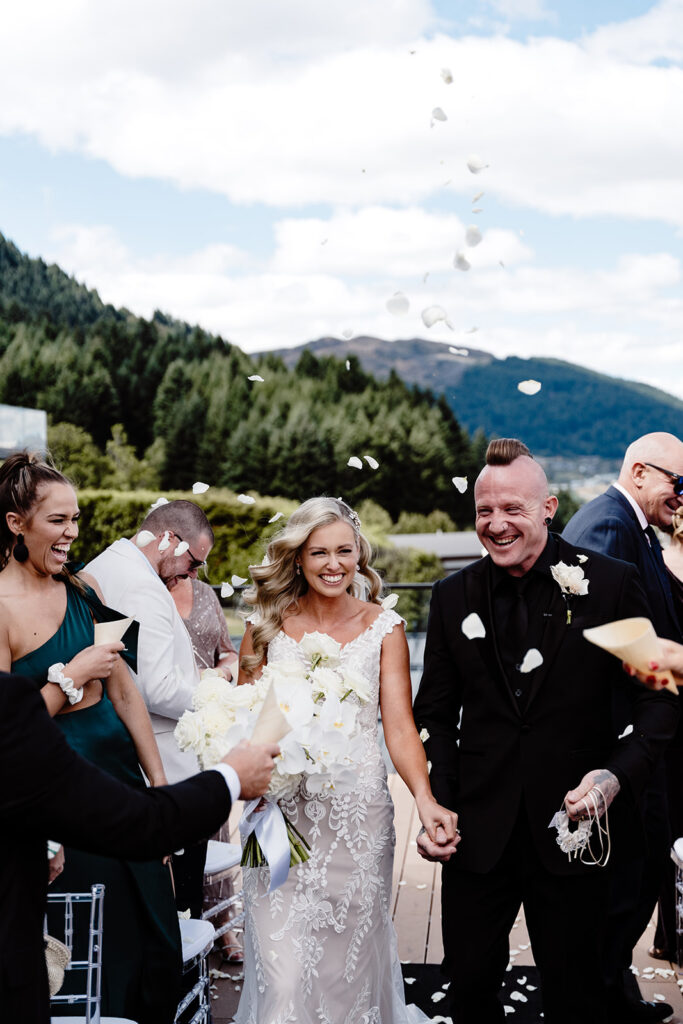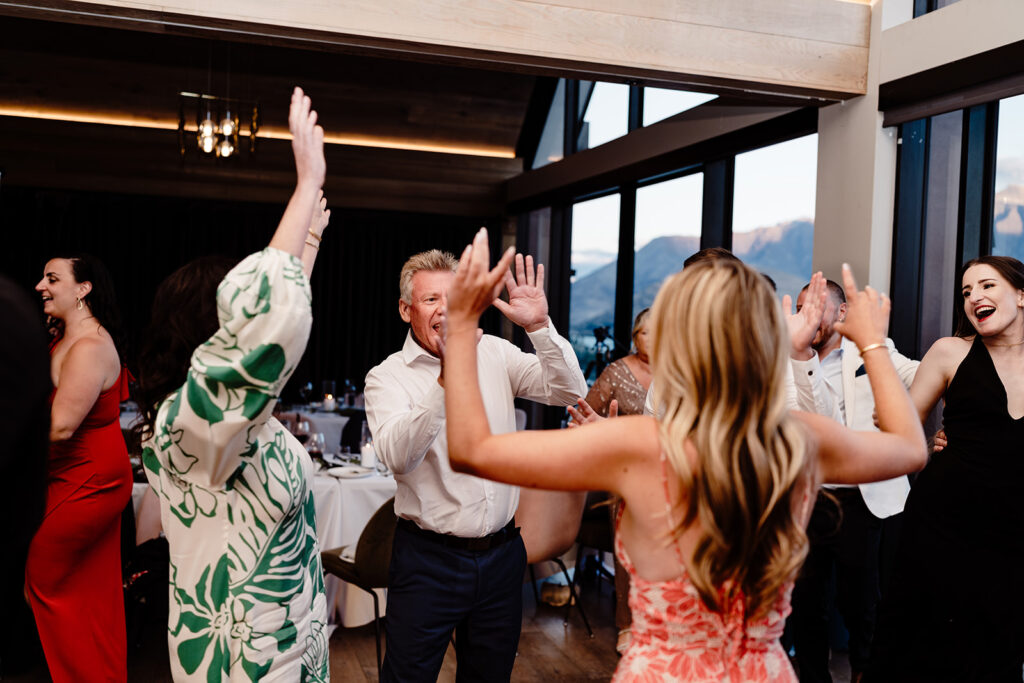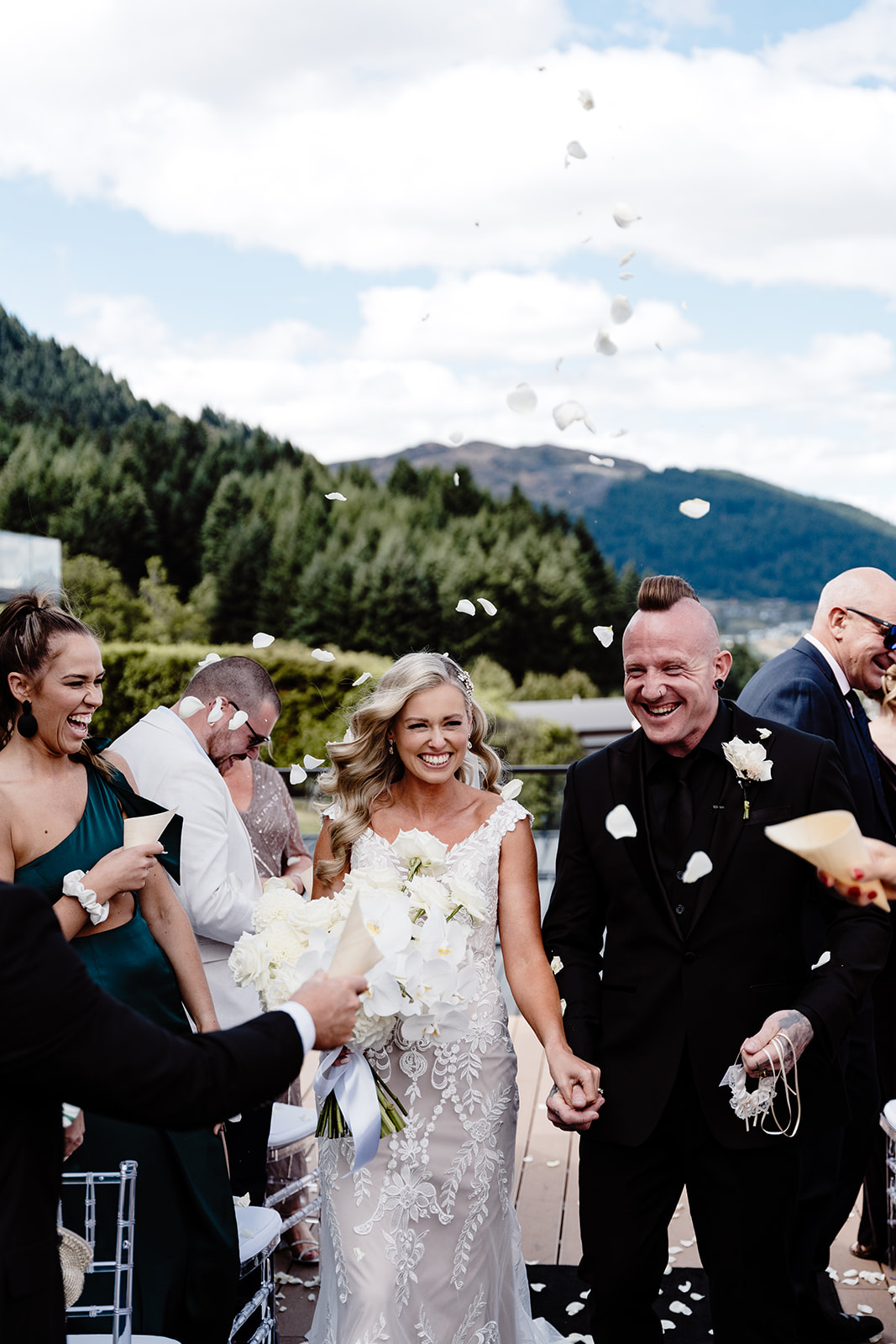“How can we get married halfway around the world, and STILL be considered legally married, right here in Melbourne?” – asked one of my recent couples who were planning their elopement.
And it’s a fair question that will certainly pop up for you too if you’re choosing to elope (instead of going for a traditional wedding).
I mean, picture this: You’re standing on a cliff edge, the sun dipping below the horizon, painting the sky in hues of pink and orange. Beside you stands your partner, looking dapper as ever, and in front of you, a person vested with the power to pronounce you partners for life.
Sounds dreamy, right?
Well, that could be you, but there’s just one tiny detail – you’re thousands of miles away from home, in a land where the local language sounds more like a song than speech, and the only words you know how to say are “Where’s the bathroom?”, “Thank you”, and “Cheers”.
How do you know that tying the knot in another country will actually be recognised as a legal marriage right here in Australia? And how can you gain peace of mind that your marriage abroad will, in fact, be considered legal at home, too?
Well, I’m here as your favourite wedding photographer from Melbourne to help you navigate the complex world of getting married abroad – and making it perfectly legal at home.
So if the idea of eloping has always intrigued you – buckle up! It’s going to be a wild ride filled with breathtaking views, bureaucratic adventures, and tales you’ll tell for years to come.
If you stick around till the end, I’m also going to share my secret tip to have your (wedding) cake and eat it too – that is, to legally elope (or get married) abroad, without the legal hassle.
But first…

1. Choose Your Elopement Location
Deciding where to exchange vows is arguably the most exciting part of planning a destination wedding or elopement.
It’s like being a kid in a candy store – but instead of candy, you’re surrounded by picturesque landscapes, historic cities, and idyllic beaches. But before you get lost in Pinterest boards and Instagram hashtags, there are a few considerations to keep in mind.
First off, let’s talk climate. Sure, getting hitched on a beach in the Maldives sounds like a dream, but have you checked their monsoon season? A torrential downpour might not be the kind of “something blue” you had in mind.
Next up, accessibility. Choosing a remote island as your wedding venue is fine, but if it requires three flights, a boat ride, and a pact with a local sea creature to get there, you might want to reconsider. Think about your guests too (if you have any). After all, you don’t want them embarking on an “Amazing Race” challenge just to see you say “I do.”
Let’s not forget about the legal side of things. Some countries have residency requirements that could range from a few days to several weeks. Unless you plan on turning your wedding trip into a temporary relocation, it’s crucial to pick a location that doesn’t require you to be a semi-permanent resident before getting hitched.
Culture and local customs are another aspect to consider. While it’s fantastic to immerse yourself in the local culture, it’s essential to understand and respect the traditions and legalities of your chosen destination. What works in Vegas doesn’t necessarily fly in Venice.
So, find that sweet spot where your desires align with practicality, legality, and a touch of adventure. Take your time, do your homework, and remember: this is the first step in crafting an unforgettable journey to the altar – wherever that may be.


2. Check legal requirements
Did someone say “Boooriiiing?” (oops, it was me).
Still, understanding the bureaucratic processes & legal requirements to get married in your desired destination is just as crucial as picking your outfit, assembling your guest list (if you want one), and planning your adventure together.
Just think of it as the less glamorous, but oh-so-necessary backbone of your destination wedding or elopement adventure. So, where do you start?
First and foremost, dive deep into the legal requirements of getting married in your chosen destination. This goes beyond just googling “How to get hitched in [insert exotic location here]”. Look up official government websites, consult with local embassies or consulates, and maybe even chat with a legal expert familiar with international marriage laws.
Laws & customs can vary from country to country – with some being more stringent than others – so it’s essential to have a clear understanding of all the requirements that you need to fulfil to submit a marriage application and make sure your elopement is legal.
I know this might seem like a chore – especially when all you want to do is daydream about the perfect day in a picture-perfect setting. But trust me, diving into the details early on will set you up for success – and maybe even save you from a wedding day mishap that ends up going viral for all the wrong reasons.

3. Have your documentation in order
Speaking of boring – you’re now entering the thrilling world of paperwork, aka the step in your destination wedding or elopement journey that’s as romantic as doing taxes.
Then again, you can’t expect to have a legally binding marriage without having your legal documentation in order, can you?
Now, almost all countries require you have valid passports & visas (with your passports valid for at least six months beyond your travel dates). Additionally, you’ll probably need your photo IDs, birth certificates, and potential divorce decrees.
Some countries will also require you to submit a marriage license application – with requirements to do so varying from one country to another (meaning you might need to arrive several days – or even weeks – before your intended wedding ceremony).
It’s also worth checking if you’ll need an apostille seal, or any special permits or affidavits stating you’re eligible to marry. Again, not super romantic – but necessary nonetheless.
While gathering & organising these documents might feel like you’re collecting infinity stones, each one will bring you a step closer to your dream wedding. So, keep a detailed checklist and give yourself plenty of time to gather everything you need.

4. Find the right celebrant for your wedding
Now that you’ve navigated the treacherous waters of international paperwork, it’s time to find the captain of your ship: the celebrant. This is the person who will guide you through your vows, pronounce you married, and, if you play your cards right, not bore your guests to tears in the process.
In fact, the right celebrant will be happy to help you obtain accurate information, and provide you with valuable assistance in planning your elopement. With extensive knowledge of the area and legal requirements, a local celebrant can help you overcome any language barriers that may arise and make the entire process smoother and stress-free.
But just like everything else about your elopement planning, finding the right celebrant requires a bit of research on your end. Besides finding someone with the right vibe for you (like, duh), you also want to make sure you found someone who’s certified to officiate a legally binding ceremony at your desired location.
Doing so will help you avoid any “But… I thought we were married” surprises down the line.

5. Consult your photographer about your plans for your special day
In the grand tapestry of your destination wedding or elopement, your photographer is the storyteller, weaving together the moments that will tell your love story for generations to come. So, choosing the right photographer is key to making your big day go as smoothly as possible.
And once you’ve chosen them, make sure you let your wedding photographer in on your plans well in advance. I, for one, love to scout the area, read up on the best locations and shooting times, and help my couples come up with an ideal schedule several weeks before their elopements.
But to do this, I have to know your vision for your special day; you need to let me in on your plans, your expectations, and your “must-haves”. Afterwards, I can start my research to cook up ideas for backdrops, locations, and schedules that fit your vision for your big day .

5. Register your marriage to get legally married
After the confetti has settled and the last slice of cake has been devoured, there’s one crucial step left to ensure your newlywed bliss is recognized worldwide: registering your marriage.
So, first things first, grasp the legal requirements for marriage registration both in the country where you’re getting married and back home. Some countries’ marriage certificates are universally recognised, but others may require a bit of bureaucratic ballet to ensure your marriage is legal everywhere.
After your ceremony, ensure you obtain your marriage certificate from the local authorities. This might involve a visit to a government office or working with your wedding planner or celebrant to navigate the process. Treat this document like gold – it’s your proof of marriage.
Better yet, make copies and translations of your new marriage certificate (if it’s not in English) to ensure that registering your marriage will be a smooth process when you get back home.
And once this last piece of the puzzle is in place, you can finally kick back, relax, and bask in the glow of being officially, legally married. Congratulations, you did it!

+1: My secret tip to eloping abroad without the hassle
But why go through all this hassle when there’s a shortcut?
…a shortcut that will save you from all the bureaucratic hassle of getting married in a foreign country.
So, what’s the shortcut?
It’s tying the knot legally at home and then celebrating with a ceremony and reception abroad. This approach can simplify the legalities while still allowing you to have the (destination) wedding of your dreams.
Not only will doing so simplify the legal process – since you’re technically getting married at home, and then throwing a celebration abroad. But it also cuts legal costs, and reduces your stress levels by a ton.
And by doing so, it also frees you to focus on the fun parts of planning your overseas celebration.
It takes away nothing from the sentimental value of celebrating your love – and you can still call it a destination wedding or an elopement. But it enables you to choose anyone as your celebrant overseas – without worrying about legal qualification or restrictions.
And without the need to arrive early for paperwork, residency permits, or other non-romantic BS, you and your guests can focus on what truly matters: celebrating the newest chapter of your love story. This also means that you can even potentially extend the festivities and turn your wedding into a multi-day celebration that no one will forget!
So, who says you can’t celebrate your love twice?
A small, legal ceremony at home followed by an all-out wedding or an intimate elopement abroad lets you share your special moment in a more intimate setting before partying it up overseas. It’s a win-win situation where you get to honour your love story in multiple ways.
There it is, my ultimate guide to eloping or having a destination wedding overseas – and getting married abroad legally.
And if you’re thinking of eloping abroad, and you’re still looking for the perfect elopement photographer to capture all the heartwarming, eye-watering, or goofy moments – check out my galleries for my latest weddings! And if you like what you see? Get in touch to lock me in to capture your love story too!
